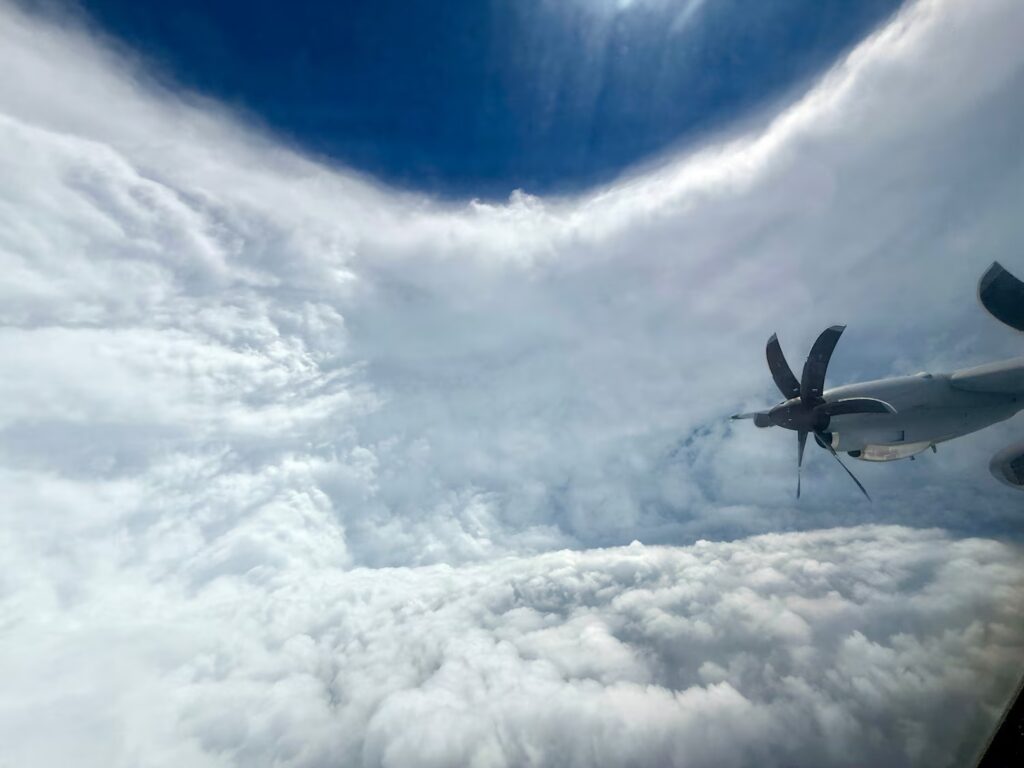In late October 2025, as Hurricane Melissa tore through the Atlantic as a Category 5 monster, the National Oceanic and Atmospheric Administration’s (NOAA) hurricane hunters continued their life-saving missions—without pay. The flights, which gather crucial storm data used by forecasters to protect life and property, went on despite a federal government shutdown that left these essential workers unpaid for weeks.
The dedication of NOAA’s scientists and pilots has always been remarkable. But this time, their commitment to duty was tested like never before.
Government Shutdown Leaves Essential Workers Unpaid
The federal government shutdown in October 2025 stemmed from a congressional stalemate over budget negotiations. While many agencies were forced to halt operations, certain federal employees were deemed “essential” and required to keep working. Among them were the hurricane hunter crews—NOAA pilots, meteorologists, and engineers whose work directly influences public safety and emergency response.
These crews were flying dangerous reconnaissance missions into one of the most powerful storms in recent memory—without receiving a paycheck.
“We’re considered essential, which means we can’t stop. But essential doesn’t mean paid,” one NOAA scientist said anonymously, expressing frustration at the situation.
The Senate had attempted to pass a measure to guarantee pay for essential workers during shutdowns, but the bill failed to move forward, leaving thousands of federal employees in limbo. This failure mirrored the government shutdown earlier that same month, when other National Weather Service and NOAA staff were also forced to work without pay to keep forecasting systems running.
For NOAA’s hurricane hunters, the stakes were even higher. Their data collection is vital not only for real-time storm tracking but also for long-term climate research—information that affects everything from coastal planning to emergency evacuation models.
Learn more about how government decisions affect climate preparedness at Sustainable Action Now’s Climate section.
Flying Into the Eye of a Monster: Hurricane Melissa
Hurricane Melissa was no ordinary storm. Rapidly intensifying over warm Atlantic waters, it reached sustained winds exceeding 180 mph, making it one of the strongest hurricanes on record for the 2025 season.
NOAA’s “hurricane hunter” aircraft—specially modified WP-3D Orions known as Kermit and Miss Piggy—flew multiple missions into Melissa’s swirling core to collect atmospheric and oceanic data. These missions are critical for improving forecast accuracy, but they are also perilous.
During Melissa’s peak intensity, both NOAA and the U.S. Air Force aborted flights due to severe turbulence. According to NOAA, one of its aircraft, Kermit, was forced to return to base for inspection after encountering violent updrafts and turbulence that made the aircraft temporarily unstable.
Despite the danger, the crews continued flying as soon as safety checks were complete—still unpaid, still dedicated.
“It’s not about the paycheck,” a veteran NOAA pilot told reporters. “It’s about the science and the people who depend on this data. We don’t get to sit this out.”
Volunteers and Retired Scientists Step In
As the shutdown dragged on, NOAA faced mounting challenges maintaining operations. Some veteran scientists—many of them recently retired—volunteered to assist without pay to ensure that critical data continued flowing. According to The New York Times, one retired meteorologist returned as an unpaid volunteer to help coordinate Melissa’s data analysis and communications.
This grassroots effort underscored the sense of duty within the meteorological community. Even in the absence of federal funding, the mission to protect lives and property continued, driven by professional pride and moral obligation.
But the situation also highlighted the fragility of America’s climate and weather infrastructure when political gridlock interrupts funding. Essential systems like satellite monitoring, storm reconnaissance, and real-time forecasting all rely on consistent federal support—support that vanished during the shutdown.
A Crisis That Exposed a Larger Problem
The Hurricane Melissa episode reveals more than just the heroism of unpaid federal workers. It underscores the systemic vulnerability of the nation’s climate response network during political standstills.
Weather forecasting and climate research are not optional luxuries—they are core public safety functions. Yet as NOAA and Air Force crews braved 150+ mph winds in the eye of a storm, their paychecks were withheld because of congressional dysfunction.
The irony is hard to ignore: while politicians debated budgets in Washington, federal scientists risked their lives collecting data that would save American communities from the very disasters worsened by climate change.
At Sustainable Action Now, we view this as a wake-up call. If climate change continues to fuel stronger hurricanes like Melissa, the country cannot afford to let partisan politics cripple the agencies tasked with tracking and mitigating them. Investing in NOAA, the National Weather Service, and other scientific agencies must remain a national priority—not a bargaining chip.
For deeper insights on how climate policy intersects with disaster preparedness, visit our Climate News hub.
Sources and Verification
While early reports, including one from SAN News, mentioned Sustainable Action Now founder Don Lichterman in connection with coverage of the story, the verified details were later corroborated by major outlets such as E&E News (via Politico) and The New York Times. These confirmations ensured that the accounts of unpaid NOAA missions, aborted flights, and volunteer efforts were all grounded in credible reporting.
Conclusion: Dedication Amid Dysfunction
The image of NOAA hurricane hunters flying headfirst into a Category 5 storm—unpaid, exhausted, but determined—captures both the best and worst of the system. It shows the extraordinary dedication of America’s scientists and pilots, but also the dangerous instability of a government that can grind their pay to a halt even as their work saves lives.
Hurricane Melissa will be remembered for its record-breaking winds and destructive power. But perhaps it should also be remembered for something else: a stark reminder that the people who protect us from climate disasters deserve stability, respect, and support—no matter the state of Washington politics.
Read more about hurricanes, NOAA research, and the climate crisis at Sustainable Action Now’s Climate Section →


